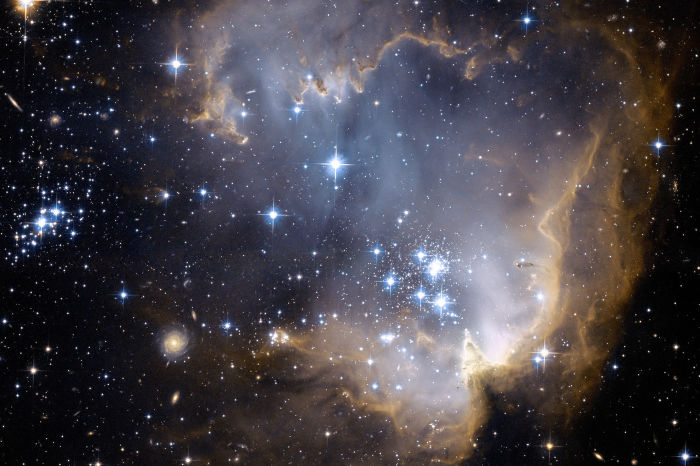In the prologue to John’s gospel, we get a deep, wonderful, and expansive image of God that builds up our awe and our gratitude.
embracing the extravagant love of God
Christmas III | John 1:1-14,16

From his fullness we have all received, grace upon grace.
Whenever I hear this opening to the Gospel according to John, I am filled with an unspeakable sense of grace. I want to bathe in it. It is a healing salve, a bubble bath, hot chocolate by the fire wrapped in a fuzzy blanket on a chilly winter night. This is an introduction to the joy of Jesus and few words can rival it.
And then we return to our chilly world, these long nights of winter, these expanses of disappointment and discouragement, these times of unsurpassed humanness and I am left with a John hangover.
This, of course, is not his fault. He’s just trying to capture the ineffable truth of God, grace, and all reality. You know, the easy stuff. It is our shallow minds and incomplete thoughts that masquerade as reasonable and objective truths: deceptively certain and improperly fixed.
I suppose this is all too heavy for Christmas morning. But let me share with you an image. A small thing to bridge this gap between the sheer grace-filled warmth of John’s prologue and the muddled existence we so often bring with us to share like a bad habit.
It starts with the image Christians have shared for centuries. Why this time, so close to the solstice, is the time we celebrate the Feast of the Incarnation with the Christ Mass. The image which pervades the whole season before, which we know as Advent.
The light coming into the darkness.
A simple image, human and easily understood. We’ve all lit candles or shined flashlights in camping tents.
And we like the juxtaposition which approaches duality: of light and dark. The richness of these two bring out of us our desire to be good and our fear of being bad.
The image evokes and compels. But more importantly, it sings. And we know what its heart is.
The light is good. And its shining brings hope to us.
And when we reflect on this image, this light, it arouses a very small thought.
“The light shines in the darkness, and the darkness did not overcome it.”
—1:5
These aren’t dualisms. The darkness cannot consume the light. The light persists. Does it not consume the darkness, then? What is the point of a Messiah that doesn’t destroy all evil?
Radiance
The flatness of our sense of right and wrong, light and dark, hope and cynicism is that against the Incarnation of God our mental templates seem juvenile and thoughtless. The juxtaposition of light and dark becomes far too easy. The conflict is not a yin and yang of equal and eternal balance, but of a radiant persistence against an eternally flawed empire.
Alexander Shaia uses the word radiance because this light is not so dull a thing as pure light. It is closer to that image you might have in your mind when listening to John’s prologue or the birth story in Luke. An image of a twinkling star in the deepest night. A radiance that dances in the sky and radiates light. It moves and acts, no matter how long the night lasts.
This is the sensation early Christians evoked on Christmas, tying it to the solstice, the longest night. That Jesus, our North Star, keeps shining a radiant light into the world. That we would spend the next twelve days praying for these long nights to end. As if our sheer force of will would bring the day back.
We’d pray these twelve days of Christmas from the longest night to the Epiphany; the day we would begin to recognize that the nights aren’t as long anymore. We can sense the daily sunrise comes a little earlier. The radiance could not be overcome by these darkest nights.
Grace
This morning we don’t celebrate that moment when we see the sun. We celebrate the grace of that radiance. Because it gives us hope when all signs indicate we should have none.
Because the Word came to us in the flesh. God incarnated God. The Incarnate One, Son of Humanity, Jesus was born. The radiance came into the world and illuminated our darkest days. And he was “full of grace and truth.”
“From his fullness we have all received, grace upon grace.”
Not just a little bit. Not a taste of grace. Or a hint. A single dose.
Heaping portions, grace upon grace. Enough for everyone. For all of creation. Jesus didn’t show up to be stingy with grace.
Grace upon grace.
The Word in Flesh
John’s prologue plums the depth of our soul’s darkest waters and declares that God’s radiant grace can reach even the deepest trenches of our souls.
This is why we can’t not get heavy when dealing with grace. Because we have to deal with how heavy our hearts are. How weighted they are with fear and anxiety. And how in need of hope they are. How in need of grace upon grace we are.
Because we need to hear a thing we strain to believe. That this grace really is for us.
I’d like to offer you the Christmas present Jesus keeps giving me year after year:
